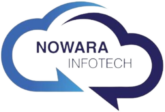In the fast-paced world of retail, supermarkets are constantly looking for ways to enhance operational efficiency, streamline processes, and improve customer satisfaction. One of the most effective solutions available is Enterprise Resource Planning (ERP) software. This integrated system provides a holistic approach to managing various business functions, ensuring that supermarkets can thrive in a competitive environment. Here’s why every supermarket should consider implementing ERP software, along with its key benefits, ROI potential, and the best ERP solutions for grocery stores.
Key Benefits of ERP Software for Supermarkets
- Streamlined Operations
ERP software centralizes various business functions, such as inventory management, purchasing, sales, and finance, into a single platform. This integration minimizes manual errors, enhances data accuracy, and ensures real-time access to information, making it easier for supermarket managers to make informed decisions. - Improved Inventory Management
Effective inventory control is crucial for supermarkets. ERP systems allow for real-time tracking of stock levels, helping to prevent overstocking and stockouts. With accurate data on inventory turnover and sales trends, supermarkets can optimize their stock levels, reduce waste, and improve cash flow. - Enhanced Customer Experience
By utilizing ERP software, supermarkets can better understand customer preferences and shopping behaviors. This insight allows for personalized marketing strategies, promotions, and product recommendations, ultimately enhancing customer satisfaction and loyalty. - Efficient Billing and POS Integration
ERP solutions often include integrated billing software and POS systems tailored for grocery stores. This seamless integration streamlines the checkout process, reduces waiting times, and enhances the overall shopping experience for customers. - Data-Driven Decision Making
With centralized data from various departments, supermarket managers can generate comprehensive reports and analytics. This data-driven approach enables better forecasting, strategic planning, and performance monitoring, leading to informed decision-making. - Cost Savings and Increased ROI
While the initial investment in ERP software may seem significant, the long-term cost savings and ROI can be substantial. By improving operational efficiency, reducing inventory costs, and enhancing customer satisfaction, supermarkets can achieve higher profitability.
Best ERP for Grocery Stores
When considering ERP solutions for supermarkets, it’s essential to choose a system that aligns with the unique needs of the grocery industry. Some of the top ERP software options include:
- Microsoft Dynamics 365: A robust solution that offers comprehensive functionality, including finance, inventory management, and customer engagement, tailored for retail businesses.
- LS Central: Built specifically for the retail sector, LS Central provides integrated tools for managing inventory, sales, and customer relationships, making it an ideal choice for supermarkets.
- SAP S/4HANA: Known for its advanced analytics and reporting capabilities, SAP offers scalable solutions that cater to the complex needs of large supermarket chains.
Conclusion
In today’s competitive retail landscape, adopting ERP software for supermarkets is no longer a luxury but a necessity. By implementing an effective ERP solution, supermarkets can enhance operational efficiency, improve customer satisfaction, and ultimately increase profitability.
At Nowara Infotech, we are proud to offer the best ERP systems for supermarkets, with our partnerships as a certified provider of Microsoft Dynamics, LS Central, and SAP. Our tailored solutions can help your supermarket thrive in the digital age. Request a demo today to explore how our ERP software can transform your business!

